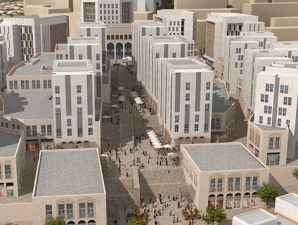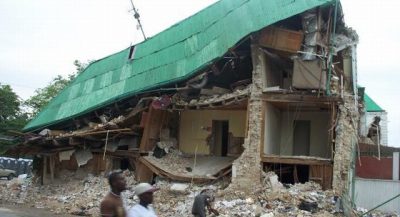 Sulha, meaning reconciliation in Arabic, is an annual grassroots event held in Israel, bringing people from all religions, faiths and none, to be together for 3 days, in an atmosphere of respect and mutual understanding.
Sulha, meaning reconciliation in Arabic, is an annual grassroots event held in Israel, bringing people from all religions, faiths and none, to be together for 3 days, in an atmosphere of respect and mutual understanding.
Started by Gabriel Meyer and Elias Jabbour 8 years ago, the site of the annual Sulha gathering has changed over the years, but last year and currently (it ends tonight) it takes over the beautiful olive groves of Latrun monastery halfway between Jerusalem & Tel Aviv.
In keeping with the peaceful and constructive aims of the organisation and the process of coming together in reconciliation and respect, the Sulha is an environmentally-friendly event, and I was very impressed to be asked to bring my own plate and cutlery as a sign of this.
Other green ways of supporting the event included car-sharing and facebook invitations. Experiential lectures and workshops on making and using bio-fuel, and input from the good people at the NGO Bustan on bedouin and ecology complemented the programme, with many sharing & listening circles, voice & dance sessions, etc. Late night performances from Berry Sakhorov, Yair Dalal, and chilling out around a bonfire to the sounds of the friars chanting in the monastery ‘up the track’ rounded out the event.
I attended a panel discussion on Ecology & Religion in an open sided tent, and as the heat of the morning intensified, and the speakers words melded into an eco-drone, I was glad to have the distant landscape of groves to mind meld into, and the croaking crickets to tune into. Michael Kagan, co-founder of The Jewish Climate Initiative, and writer of the Holistic Haggadah, was the first to speak, and he posed the question “what would the world be like without humans?” (for 1 answer, read this review of Alan Weisman’s book:’The World Without Us’).
All the representative of religions spoke around this point: there seemed general consensus that humans have been the bringers of doom upon ourselves, and we could be wiped away through the effects of global climate change. Geshe Thubten Phelgive, a Tibetan Lama, got right to the point in highlighting human greed as the root of this: “The only advantage is humans have is the power – the capacity of thinking. If we become slaves of our ignorance – then we become the worst evil”, and terrifyingly, he predicted that we would see worldwide wars fought over water within 10-15 years. Developing compassion is a central tenent of the Buddhist faith, and Geshe-la spoke of the tantric meditation of seeing all sentient beings (i.e everything that lives) as ourselves, and this practise develops in us the ability to show love and care for everything else as (presumably) we show love and care for ourselves.
Sheik Mahmoud J’arabia, from the un-recognised Bedouin village of Wadi Nam, explained how the koran made it explicitly clear that “we are of the earth, from the dirt,” and as this is our starting and ending point, why not respect it? He has been responsible for overseeing the construction in his village of a Mosque built from mud and straw…but more of this in another post.
A Reconstructionist Rabbinical student, Amy Lowenthal, talked of the need to use our observations now of how global environmental change is affecting the poor particularly, and and to use our knowledge fast. A Christian missionary, who was a late addition to the panel, drew the audience’s attention to Christianity’s two commandments beyond the 10 handed down to Charlton Heston by Cecil B De Mille: “Love all that he created.”
I remain surprised that no-one from the monastery yards away was available to speak, or at least physically commune with us, in this relatively pristine agri-environment (I recommend the olive oil & the wine from Latrun).
Rav Oded Mizrahi told of his own journey, out of the haredi world, and into a quest to learn “to love.” He spoke of both the “wisdom & the disaster” inherent within religion, told a great Talmud tale of a river saying to a man “you’re for maybe, but I’m for sure,” and the need to de-bug them all (with which I agree), and I interpreted this as an acknowledgement of the responsibility of faiths to accept their part in the environmental disaster we find ourselves in at the end of the 21st Century. And yet, all representatives seemed to agree, that it is these same faiths which must also take responsibility in leading their followers (and the global community, together) out of degradation and collapse, back, somehow, toward the pristine wilderness in which adam & eve found themselves in, Bereshit.
Michael Kagan introduced the JCI project ‘A Holy Land Declaration’ (more of which also in a later post) which will attempt to bring all faiths to a common agreement on environmental protection. He emphasized the need to come together in “a great sharing to find approaches to survive the next stage.”
For me, and the 200+ folk of all ages and from all walks of life who had crowded into this tent at the Sulha: this was part of the sharing. I personally don’t believe religions have all the answers, but in this tiny strip of land of cleantech as well as conflict, maybe just maybe, we can find the way forward. On the way to Sulha…..




Great piece James! T’was an honor being there with you.
The most powerful part of Sulha for me, was being in a place where hundreds of people just plain old wanted to do good. And the composting toilets was certainly an extra green mile by Sulha organizers.
As a religious person, though, I would have hoped for more of a religious showing. Panelists and organizers were mostly religious, but most of the crowd seemed to be secular people (justifiably) frustrated with religious separatism.
Also- Do you know if Sulha was ever held on the other side of the Green Line? I’d imagine that a Palestinian would really have to want peace in order to travel through his handful of checkpoints en route to the Sulha site. (I wonder if I would have made the trip if my ride was such a tedious affair?)
In any case, good coverage as always.
Yannai
Behold how good and how pleasant it is for brothers and sisters to dwell peacefully together! Thanks for your article. Our Christian architect sent this to me. Our new synagogue will incorporate some green features, but perhaps of more interest is the fact that our contractor, who is contributing his services at cost to the project, is a Palestinian Muslim. Reconciliation is indeed beginning to take hold all over the world. May we continue to make progress to end our relatively short history of violence and reprise our long history of dwelling peacefully together. Yasher Koach!